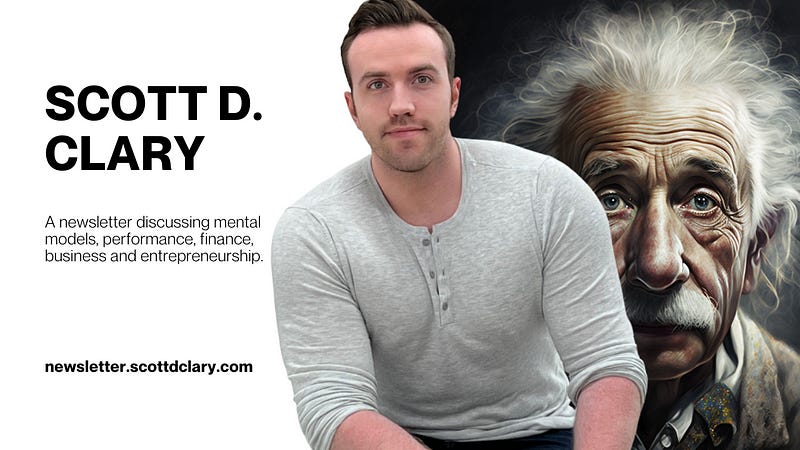Focus Like Einstein (And Win Big)
Mental Models, Performance, Business & Entrepreneurship | newsletter.scottdclary.com
Mental Models, Performance, Business & Entrepreneurship | newsletter.scottdclary.com
Hi All!
Here is my weekly email discussing mental models, performance, business and entrepreneurship.
Subscribe to get this newsletter in your inbox, every week.
Sponsor: Success Story Podcast
Stories worth telling.
Join Scott D. Clary on the Success Story Podcast, as he sits…



